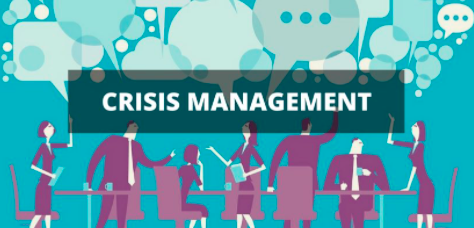Using Backlinks to Direct Traffic to Your Website

By James Pruitt, Senior Staff Writer
How can a Veteran Business Owner lure a casual onlooker into a strong, mutually beneficial partnership? The Age of the Internet has brought the concept of “Search Engine Optimization” also known as “SEO”. Backlinks are one of the best strategies for establishing SEO within your niche.
The Concept of Search Engine Optimization
“Search Engine Optimization,” or SEO, increases the likelihood of a website’s appearance in an Internet search. One common strategy involves the use of backlinks, which connects the site to other related pages. Site administrators use various tactics to link to other websites.
Foundations of SEO
Authority, Content, Structure, Useability
First, websites must command authority and retain credibility. Respectable content should maintain internal coherence, as well as factual verifiability. Trust in a website’s content precedes optimal search engine optimization. Posting foolish content could make your website irrelevant. Subsequently, the website could disappear into the back pages of internet searches.
Second, visibility is key. Many websites for small businesses may specialize in a certain niche. Veteran Business Owners need to sync with others in their niche. Building enthusiasm within the same field encourages backlinks. Build excitement among others within your business’s niche, and they will link to your website.
Third, consider the structure of the website. Veteran Business Owners should design sites with attractive layouts. Otherwise, Google searchers will simply dismiss the site as not only hard-to-use, but unprofessional. Understanding themes in web-building applications like WordPress could facilitate the process of user-friendly website construction.
Fourth, consider the technical aspects, the website should be fast, crawlable, and secure. A slow website could frustrate casual users. Additionally, wise users understand the importance of security. Finally, the search engine’s bots could ignore the website absent content that remains in sync with your industry.
Steps to Build Backlinks: Strategies for Building Enthusiasm
- Analysis
Key words are important for backlinks. Some basic phrases can optimize web search results. For example, many potential customers use the phrase “near me” to find local businesses. These phrases are crucial to lift your business to the top of the list in web search results.
- Development
Your website can develop to any level of complexity and sophistication. Just ensure your content remains in-sync with the needs of customers. The more useful the information, the greater the trust with potential clients.
However, always consider user-friendliness. A “busy” or confusing website merely alienates viewers. Again, understanding “themes” in WordPress or other web-building websites may keep websites simple and interesting.
- Publication
Business owners should use care with use of “key words” in maximizing SEO. Overuse of general stock-phrases may garner hits without engagement. “Key words” should generally target the relevant industry. Google Keyword Planner may help with directing traffic specifically to spark a sale or partnership.
- Marketing
Social media shares do not hurt a brand. Feel free to use them. However, backlinks and key words remain the best ways to spread the word.
- Maintenance
Always monitor engagement with your site. Google Analytics is one tool to ensure healthy traffic to your website.
Other aps such as SEMRUSH, Magestic, Moz, or Ahrefs offer both free and paid services to ensure your website’s ongoing health.
Strategies to Avoid
Search engine companies are on to most shady backlink tactics. Starting in 2012, Google launched the Penguin algorithm to their search engine. The Penguin algorithm can detect, with uncanny accuracy, attempts to buy or fabricate backlinks to raise a website in a list of search results. Such attempts are not worth anyone’s time.
Strategies to Recommend
Consider your competition. Also consider the “buzzwords” in your industry. Do not forget your niche in the local economy. Ultimately, Veteran Business Owners should consider their marketing efforts as genuine engagement with real human beings, not screens or bots. Hence, we obtain backlinks, and move toward optimal SEO.
VAMBOA, the Veterans and Military Business Owners Association hopes that this article has been helpful. We work hard to bring you important, positive, helpful, and timely information and are the “go to” online venue for Veteran and Military Business Owners. VAMBOA is a non-profit trade association. We do not charge members any dues or fees and members can also use our seal on their collateral and website. If you are not yet a member, you can register here:
https://vamboa.org/member-registration/
We also invite you to check us out on social media too.
Facebook: https://www.facebook.com/vamboa
Twitter: https://twitter.com/VAMBOA
Don’t forget that VAMBOA members receive significant discounts on technology needs. Check them out here:
https://vamboa.org/dell-technologies/











